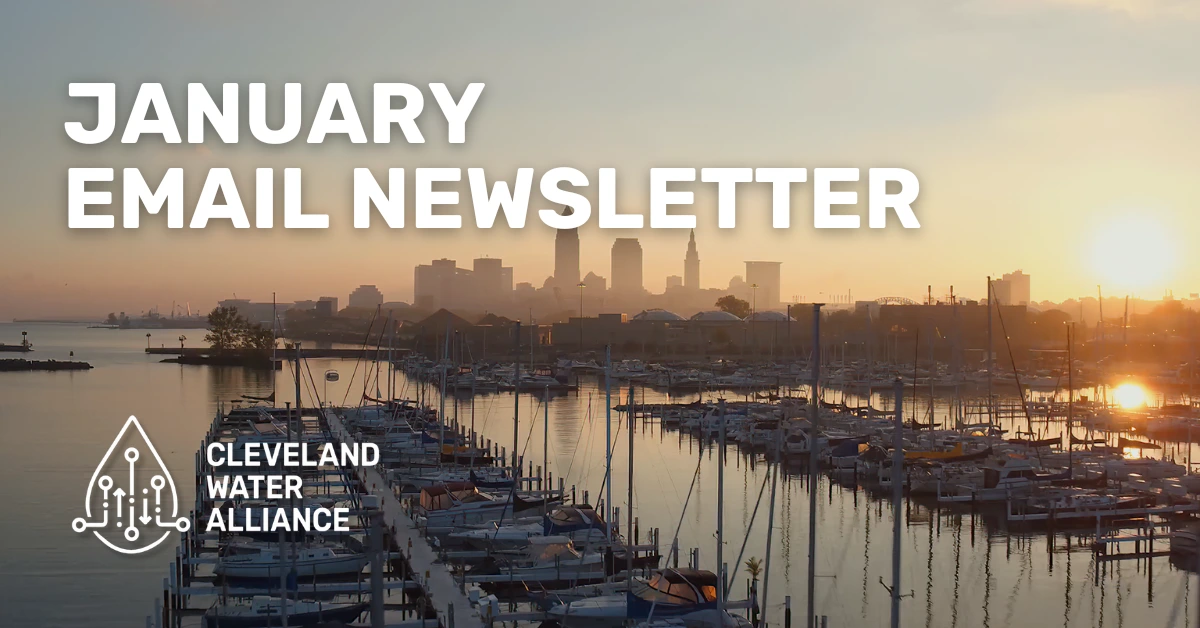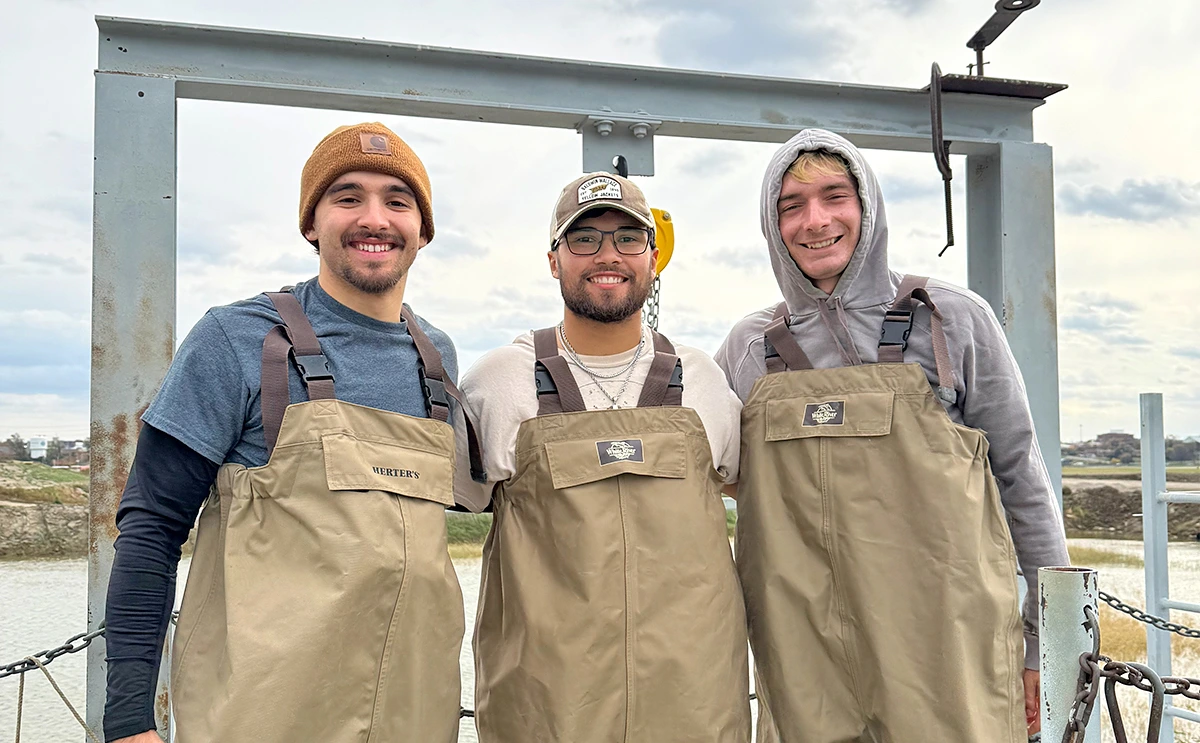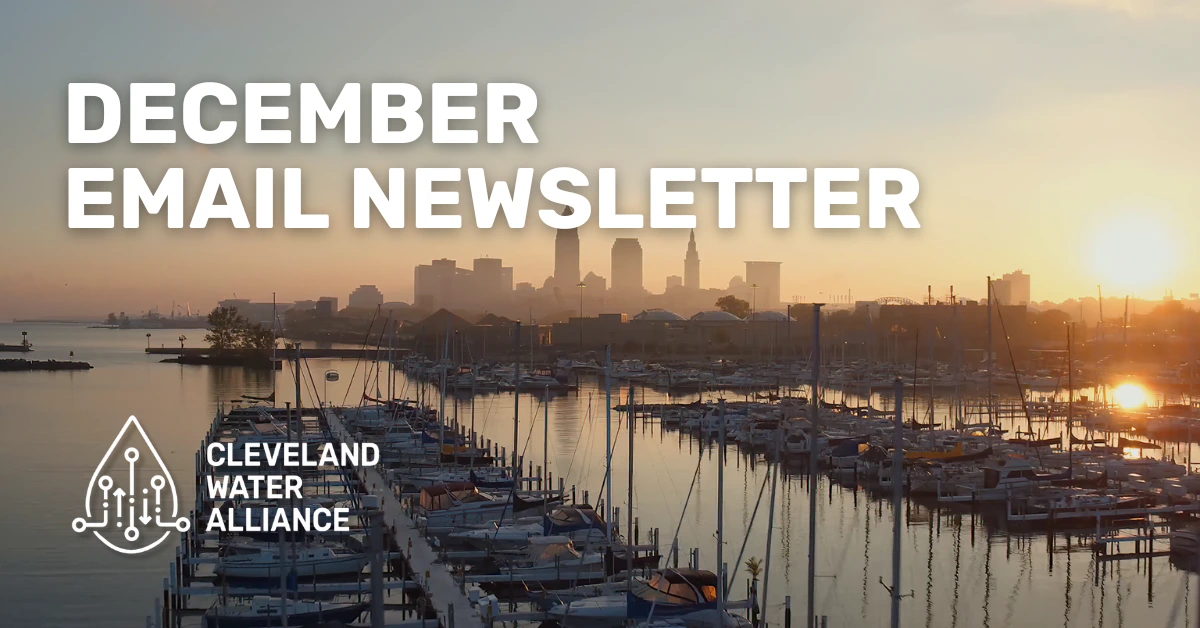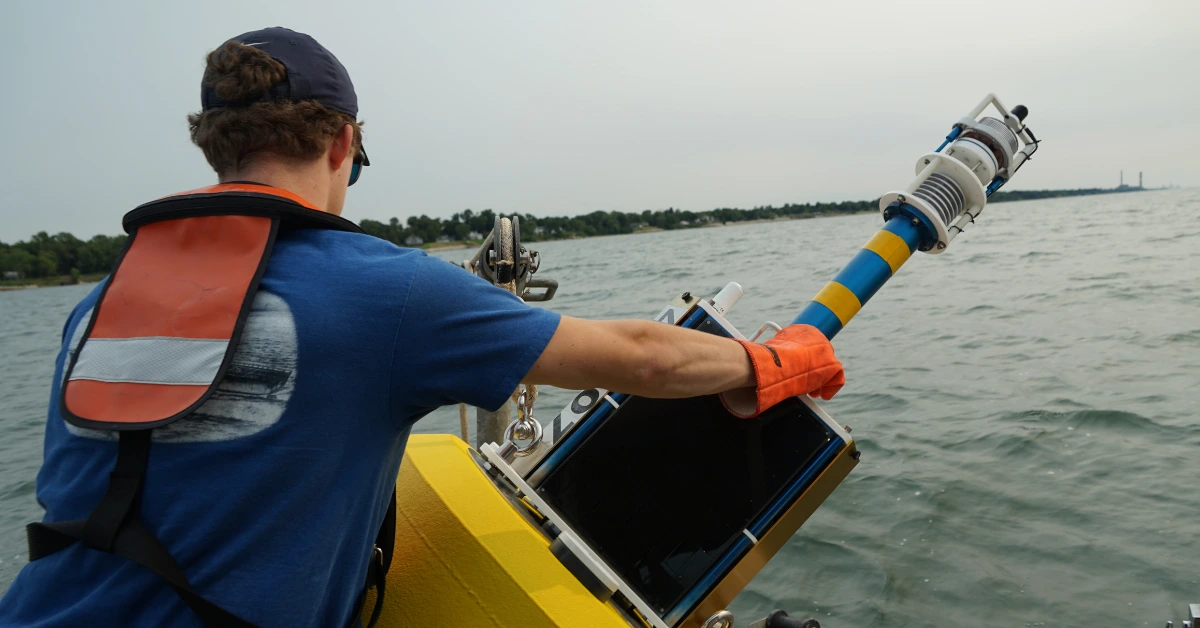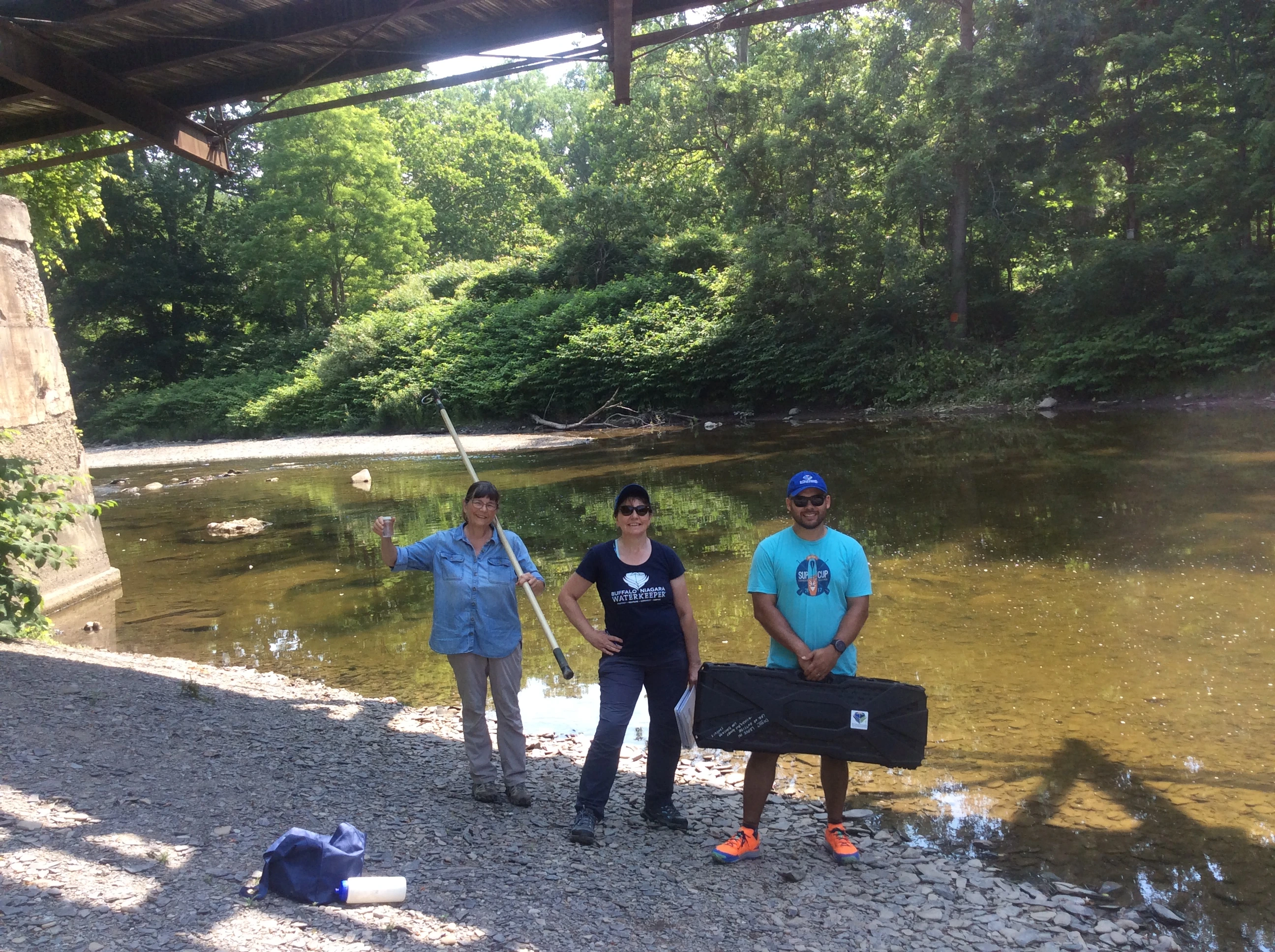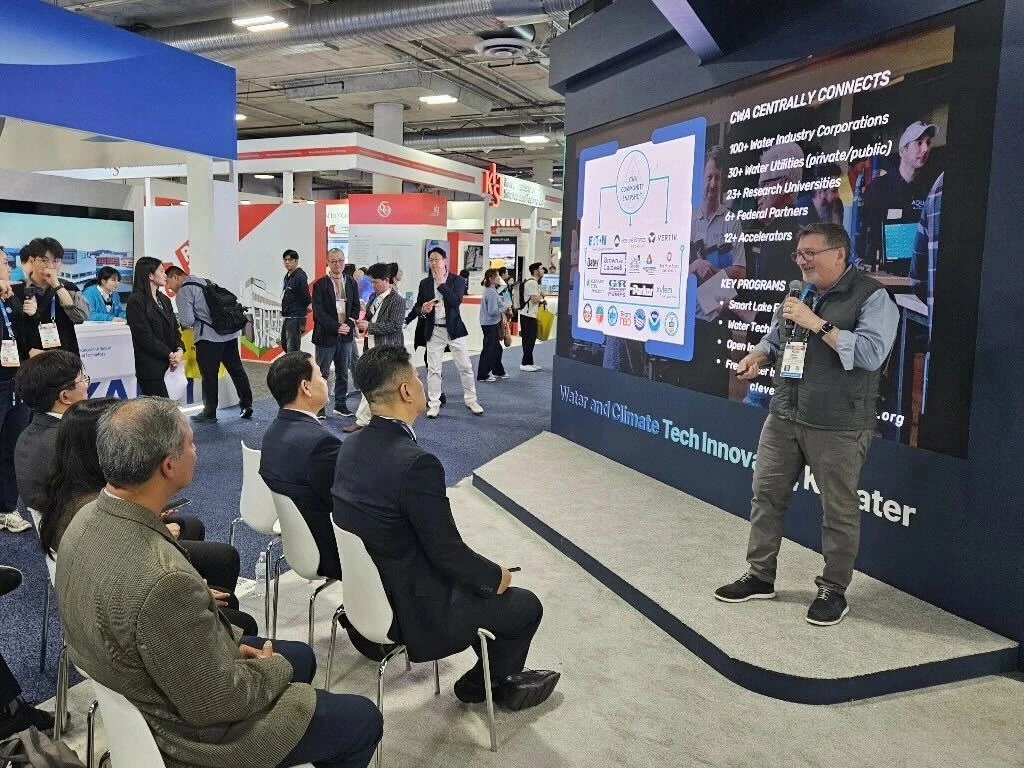Our CWA team had a productive week at IAGLR 2024, featuring multiple sessions, presentations, networking opportunities, and work sessions with critical partners from across the region.
Listen to this article
The Cleveland Water Alliance (CWA) had a productive and inspiring week at the 67th Annual Conference on Great Lakes Research (IAGLR) held in Windsor, Ontario, from May 20–24, 2024. The conference, themed "Shared Lakes: One Water, One Health," brought together researchers, policymakers, and stakeholders from around the globe to discuss the health and management of the Great Lakes. Here's a recap of our team's participation, the highlights, and the connections we made.
Conference Overview
IAGLR 2024 focused on the interconnectedness of environmental and public health in the context of large lakes. The conference featured four days of scientific sessions, engaging speakers, and networking opportunities, all aimed at fostering collaboration and sharing knowledge to tackle pressing issues related to the Great Lakes.
CWA's Contributions
Max Herzog: Community Science Leadership

Max Herzog showcased CWA's leadership in community science with a presentation on the "Lake Erie Baseline Assessment Framework: Telling a Community-Driven Story about Lake Erie Watershed Health." This project, part of the Lake Erie Volunteer Science Network (LEVSN), highlights how CWA unifies regional groups to enhance the quality and impact of community-collected water data. Max also co-organized the "Community Science: Local Action for Resilience and Research" session with Water Rangers, featuring 19 presentations from volunteer-led science groups across the Great Lakes and beyond.
Max reflected, “I was excited to see the varied approaches different groups use to engage their communities and address issues like PFAS, plastic pollution, and pharmaceutical monitoring. There’s huge potential in community science, but it requires significant investment to realize its full impact.”
During the conference, Max had the opportunity to engage deeply with collaborators from the International Joint Commission (IJC). IJC has contracted CWA and partners like LimnoTech and Water Data Collaborative to develop a guidebook for volunteer water quality monitoring across the Great Lakes region. This initiative, part of the IJC’s Great Lakes Science Advisory Board, aims to create community science resource hubs that bridge academic and local groups, enhancing coordination and support for water monitoring efforts. Discussions and working sessions with the IJC team and partners were highlighted, reinforcing our collaborative efforts to fill critical data gaps and foster greater community engagement in water quality management.
It was particularly exciting to see Chris Winslow, Director of Ohio Sea Grant, CWA board member, and Co-Chair of IJC’s Research Coordination Committee, present this work in public for the first time during IJC’s session on a Great Lakes Decadal Science Plan.

Emily Hamilton: Innovation in Smart Lakes
Emily Hamilton co-chaired the session "Smarter Lakes are Better Lakes: Creating an Ecosystem of Digitally Connected Fresh Water" alongside partners from LimnoTech, the University of Windsor, and Michigan Tech. This session highlighted innovative technologies and solutions tested in CWA's Water Accelerator Testbeds, featuring presentations and demonstrations on topics like wireless sensor networking and VR data navigation.
Emily noted a significant trend: the increasing demand for environmental data by academic researchers and private companies. This highlights the need for robust data infrastructure and clear protocols around data ownership and access.

Three innovators from the CWA network, including Aquanty, True Elements, and Lake Tech, represented the private sector, showcasing their platforms and data management solutions.
Jeff Pu: Winter Limnology Insights
Jeff Pu and the Great Lakes Winter Grab Research Consortium presented on "The Great Lakes Winter Grab: Limnological Data From a Multi-Institutional Winter Sampling Campaign." This effort provided standardized data on winter conditions across the Great Lakes, offering valuable insights into the ecosystem's winter dynamics while filling in critical research needs.

Jeff also emphasized the importance of extracurricular activities for networking, such as nature walks, barbecues, and the annual hockey game. This fun event saw IAGLR attendees form "east vs. west" teams for a friendly match. CWA’s Emily Hamilton proudly coached the East team, cheering on Ken Gibbons from LimnoTech and her entire team, even though the West emerged victorious.

Jeff noted the importance of attending IAGLR to learn about the latest updates from key research programs across the Great Lakes, such as H2Ohio Wetland Monitoring and the National Center for Water Quality Research.
Attending various talks given by key research program managers and extracurricular activities provided excellent formal and informal networking and relationship-building opportunities with colleagues from Heidelberg University, Kent State University, Old Women Creek National Research Reserve, and others.
Ebie Holst: Oil and Chemical Spill Response
Ebie Holst presented on "Oil & Chemical Spill Detection and Response within the Lake Erie Basin," a collaboration with the Ohio Department of Natural Resources and LimnoTech. This session addressed the need for updated spill risk maps and advanced sensor networks to protect the Lake Erie Basin from industrial threats. Ebie's presentation sparked significant interest, with attendees eager to access and utilize the proposed sensor data.

Key Outcomes and Connections
- Collaborative Projects: We advanced our work with the International Joint Commission (IJC) on developing frameworks for community science across the Great Lakes and met with key partners like Water Rangers to strengthen cross-border collaborations.
- Networking: The team engaged with a wide range of researchers, innovators, and institutions, fostering relationships that will support future projects and initiatives. Notable connections included discussions with LimnoTech, Ohio State University, Kent State University, Case Western Reserve University, and the University of Toledo. Networking with new potential partners, such as a professor from Cleveland State University who was interested in joining our research network, was also a highlight.
- Strategic Partnerships: CWA's recent strategic partnership with Heidelberg University will integrate smart lake data with long-term watershed monitoring data, providing comprehensive insights into the Lake Erie ecosystem.
Looking Ahead
Our participation in IAGLR 2024 reinforced CWA's position as a leader in water innovation and community science. We are excited about the new connections and collaborative opportunities that emerged from the conference. We look forward to continuing our work to enhance water quality monitoring and management across the Great Lakes and beyond.
Stay tuned for more updates on our projects and initiatives as we continue to drive innovation and foster collaboration in the water sector.



.svg)


